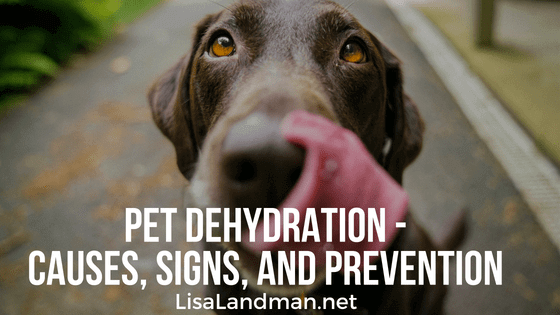Summer is well upon us – which means warmer temperatures and a higher chance of dehydration. It is extremely important to stay hydrated all year long, and we cannot forget about hydrating our pets! Dehydration in dogs, cats, and other animals can cause serious health issues. While every animal is different, here are the causes, signs, and prevention tips of dehydration for our furry friends.
Causes
Just like humans, animals become dehydrated due to a lack of water and fluid loss. If your pet is not drinking or eating enough, then dehydration should be a major concern. Vomiting, diarrhea, and excess urination are other causes of dehydration. “Another potential cause of dehydration is illness, especially one that includes fever, vomiting or diarrhea,” Dr. Liz Stelow, a board-certified veterinary behaviorist and chief of service of clinical behavior service at the Veterinary Medical Teaching Hospital at the University of California, said. “Even if the pet is not vomiting or feverish, his sluggishness when ill may cause him to make fewer trips to the water bowl or fountain.”
Signs
Every pet is different so each animal may display different signs of dehydration. A few symptoms of dehydration in dogs include weakness, dry gums, sunken eyes, and collapsing. The most common sign in dogs is the loss of elasticity in the skin. As for cats, common symptoms include panting, sunken eyes, dry mouth, and loss of appetite.
Prevention
Preventing pet dehydration is extremely important for your furry friend’s health. The best and easiest way to ensure a hydrated pet is to provide access to clean, cool, and an abundance of water. “In most cases, your dogs or cats will naturally know when they should drink some water and when they should stop,” Dr. Gicking, a board-certified in veterinary emergency and critical care, said. If you have more than one pet, he recommends providing more than one water bowl.
Furthermore, if your pet shows signs of dehydration, be sure to provide plenty of cool water, Pedialyte, or an electrolyte formula designed especially for animals to help rehydrate them. If temperatures are extremely warm, you can freeze your pet’s water bowl before filling it with water. Freezing the bowl will keep the water cooler for longer and ensure your pet gets a nice cool drink of water.
The most important result of keeping your pets properly hydrated is keeping them healthier and happier! Be sure to monitor your pet’s hydration and contact your vet if you have any questions or concerns.
Lisa Landman is a strong advocate of adopting pets and has six rescue dogs! Want to see photos of her dogs? Check our her dog gallery or Twitter!

